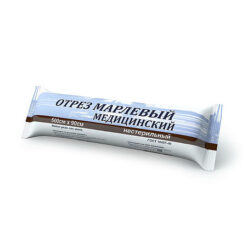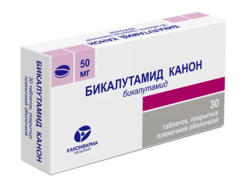-
×


-
×


Subtotal: €28.89




Subtotal: €28.89




Subtotal: €28.89
Cisplatin (cis-diamindichloroplatinum), is an anticancer drug containing the heavy metal platinum.
Cisplatin has properties similar to those of bifunctional alkylating agents which form inter- and intra-strand cross-links in DNA (deoxyribonucleic acid) thereby disrupting its functions, leading to cell death; the drug does not have cyclic and phase specificity.
It has immunosuppressive and radiosensitizing properties.
Cisplatin, usually as part of combination chemotherapy, is widely used in the treatment of the following solid tumors:
Germ cell tumors of women and men
Ovarian and testicular cancer
Small cell and non-small cell lung cancer
Squamous cell carcinoma of the head and neck
Bladder cancer
In addition, cisplatin has antitumor activity in the following types of tumors:
Cervical cancer
Osteosarcoma
Melanoma
Neuroblastoma
Esophageal cancer
Cisplatin (cis-diamindichloroplatinum), is an anticancer drug containing the heavy metal platinum.
Cisplatin has properties similar to those of bifunctional alkylating agents that form interstrand and intrastrand cross-links in DNA (deoxyribonucleic acid), thereby disrupting its functions, which leads to cell death; Moreover, the drug does not have cyclic and phase specificity.
It has immunosuppressive and radiosensitizing properties.
It is not recommended to use cisplatin in patients with chickenpox (including recent or after contact with sick people), herpes zoster and other acute infectious diseases.
Use with caution in patients with gout or nephrolithiasis (including a history), as well as in patients who have previously received cytotoxic chemotherapy or radiation therapy.
Before starting and during treatment with cisplatin, it is necessary to monitor the peripheral blood picture, laboratory data of kidney and liver function, indicators of water-electrolyte metabolism and uric acid levels, conduct audiometry and neurological examinations. The first manifestations of the nephrotoxic effect of cisplatin occur in the 2nd week after administration and are manifested by increased levels of creatinine, uric acid, residual nitrogen and/or decreased creatinine clearance. To reduce nephrotoxicity, before starting treatment, it is recommended to administer an intravenous infusion of 0.9% sodium chloride solution or 5% glucose solution and additionally prescribe mannitol.
Vaccination of patients and their family members is not recommended during cisplatin therapy.
Experimental studies have established the carcinogenic and mutagenic effects of cisplatin.
Cisplatin
Active substance:
cisplatin – 0.0005 g.
Excipients:
sodium chloride – 0.009 g,
sodium hydroxide or hydrochloric acid – up to pH 3.2,
water for injection – up to 1 ml.
Cisplatin is contraindicated during pregnancy. If it is necessary to use it during lactation, the issue of stopping breastfeeding should be decided.
Women of childbearing potential should use reliable methods of contraception during cisplatin therapy.
Experimental studies have established the teratogenic and embryotoxic effects of cisplatin.
Individual intolerance to cisplatin or other compounds containing platinum;
Impaired renal function (serum creatinine concentration more than 115 µmol/l);
Inhibition of bone marrow hematopoiesis;
Pregnancy and breastfeeding;
Generalized infections.
With caution: Acute infectious diseases of viral (varicella, including recent or recent contact with a patient, herpes zoster), fungal or bacterial origin; hyperuricemia (including those manifested by gout and/or urate 4 nephrourolithiasis), nephrourolithiasis, polyneuritis, inhibition of bone marrow hematopoiesis (including against the background of previous radiation or chemotherapy).
From the digestive system: nausea, vomiting, stomatitis, anorexia.
From the hematopoietic system: leukopenia, anemia, thrombocytopenia.
From the central nervous system: convulsions, peripheral neuropathy, optic neuritis, color vision disorders, ototoxicity.
Metabolism: hyperuricemia, hypocalcemia, hypomagnesemia, syndrome of inappropriate ADH secretion.
From the reproductive system: amenorrhea, azoospermia.
From the cardiovascular system: tachycardia, arterial hypotension.
Allergic reactions: skin rash, angioedema, hoarseness.
Other: nephrotoxic effect.
Concomitant use of cisplatin with uricosuric anti-gout drugs may increase the risk of nephropathy.
Combined use with antihistamines, phenothiazines, and thioxanthenes may mask the symptoms of the ototoxic effect of cisplatin.
When used simultaneously with drugs that have ototoxic, nephrotoxic, neurotoxic effects, toxic effects may be enhanced.
In a place protected from light, at a temperature of 15–25 °C (do not freeze)
2 years
Lance Farm, Russia
| Shelf life | 2 years |
|---|---|
| Conditions of storage | In the dark place at 15-25 °C (do not freeze) |
| Manufacturer | Lance Farm, Russia |
| Medication form | concentrate for preparation of infusion solution |
| Brand | Lance Farm |
Buy Cisplatin-LNS concentrate 0.5 mg/ml, 100 ml with delivery to USA, UK, Europe and over 120 other countries.